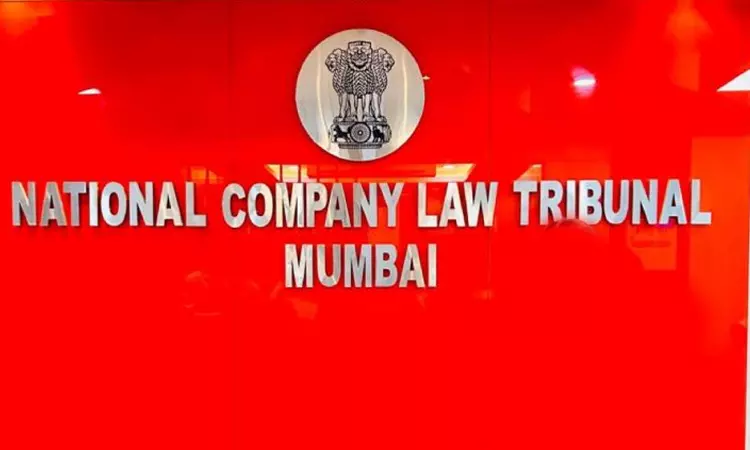Restriction On CIRP Assignments Taken By IRP Is A Matter Of Code Of Conduct Between IBBI & Resolution Professional: NCLT Mumbai
Mohd Malik Chauhan
26 July 2025 6:55 PM IST
The National Company Law Tribunal (NCLT) Mumbai bench of Shri Prabhat Kumar (Technical Member) and Justice Shri V.G. Bisht (Judicial Member) has held that restrictions on the number of Corporate Insolvency Resolution Professional (CIRP) assignments an Insolvency Professional (IP) can take is a conduct of code between the Insolvency and Bankruptcy Board of India (IBBI) and the IP. It...
The National Company Law Tribunal (NCLT) Mumbai bench of Shri Prabhat Kumar (Technical Member) and Justice Shri V.G. Bisht (Judicial Member) has held that restrictions on the number of Corporate Insolvency Resolution Professional (CIRP) assignments an Insolvency Professional (IP) can take is a conduct of code between the Insolvency and Bankruptcy Board of India (IBBI) and the IP. It cannot be decided by the Tribunal under section 60 (5) of the IBC.
The present application has been filed under section 60(5) of the Insolvency and Bankruptcy Code, 2016 (IBC) seeking to initiate legal actions against the erstwhile Interim Resolution Professional (IRP) for alleged illegal acts. It is further prayed that all actions taken by the IRP should be set aside.
The Applicant submitted that IRP was not qualified to take up the assignment on the date of commencement of CIRP as he was already holding more than 3 assignments having claims exceeding Rs. 1,000 Crores. Form G was issued without affording an opportunity to the CoC members to vote upon the issuance of Form G and eligibility criteria of the PRAs. The IRP cannot publish Form G inviting Expression of Interest (EOIs) in terms of Regulation 36A(1) of the CIRP Regulations.
Per contra, the Respondents submitted that the Applicants have absolutely no locus standi to file the captioned Application.The Respondent on 20 December 2024 sent an email and informed the members of the CoC that due to some personal exigencies.He will not be able to take up assignment as the resolution professional of the Corporate Debtor and requested the members of the CoC to consider replacing the IRP with any other insolvency professional as the resolution professional of the Corporate Debtor.
It was further submitted that the restriction on the number of assignments that an Insolvency Professional ("IP") can take is a matter of the Code of Conduct between the regulator IBBI and the regulated entity, i.e., the IP.
The Tribunal noted that the Applicant contended that the Respondent is disqualified from acting as IRP due to holding more than 3 CIRP assignments amounting to Rs. 1000 crores. This submission was rejected on the ground that this condition of holding not more than 3 CIRP assignments arises from the Code of Conduct, not specifically mentioned under Regulation 3 of the CIRP Regulations which governs the eligibility. Since the stipulation is merely directory, not mandatory as the word 'may' has been used, the issue falls within the domain of the IBBI, not the Adjudicating Authority.
It further observed that the IBC does not mandate that a specific approval of the CoC should be taken before issuance of Form G. However, the Respondent had duly kept informed the CoC of his actions. Since in the definition of Resolution Professional, IRP is also included, the actions taken by the Respondent in his capacity as IRP cannot be considered illegal.
It further observed that the argument of the Applicant that the Disciplinary Proceedings had already been initiated against the Respondent was rejected as it emerged from an incorrect interpretation of the court's order. In the present case, no order passed by the IBBI supporting this allegation has been produced. Regarding the admission of Phoenix ARC's claims, it observed that another application is already pending in which this has been raised by the Applicant.
It concluded that although the claims were earlier rejected, they were re-verified in pursuance of an order passed by the Tribunal. Since, the process followed by the IRP was neither biased nor perverse, no adverse inference can be drawn against the IRP. Accordingly, the present application was rejected.
Case Title:SAGAR SHARMA & ANR. V/s ROHIT MEHRA
Case Number: IA 197 of 2025
Order Date: 10/07/2025



